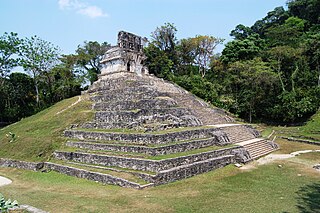The 780s decade ran from January 1, 780, to December 31, 789.
The 740s decade ran from January 1, 740, to December 31, 749.
The 730s decade ran from January 1, 730, to December 31, 739.
The 720s decade ran from January 1, 720, to December 31, 729.
The 710s decade ran from January 1, 710, to December 31, 719.
The 700s decade ran from January 1, 700, to December 31, 709.

Year 754 (DCCLIV) was a common year starting on Tuesday of the Julian calendar, the 754th year of the Common Era (CE) and Anno Domini (AD) designations, the 754th year of the 1st millennium, the 54th year of the 8th century, and the 5th year of the 750s decade. The denomination 754 for this year has been used since the early medieval period, when the Anno Domini calendar era became the prevalent method in Europe for naming years.
The 650s decade ran from January 1, 650, to December 31, 659.
The 670s decade ran from January 1, 670, to December 31, 679.
The 680s decade ran from January 1, 680, to December 31, 689.
The 690s decade ran from January 1, 690, to December 31, 699.

Year 741 (DCCXLI) was a common year starting on Sunday of the Julian calendar. The denomination 741 for this year has been used since the early medieval period, when the Anno Domini calendar era became the prevalent method in Europe for naming years.

Year 784 (DCCLXXXIV) was a leap year starting on Thursday of the Julian calendar, the 784th year of the Common Era (CE) and Anno Domini (AD) designations, the 784th year of the 1st millennium, the 84th year of the 8th century, and the 5th year of the 780s decade. The denomination 784 for this year has been used since the early medieval period, when the Anno Domini calendar era became the prevalent method in Europe for naming years.

Year 785 (DCCLXXXV) was a common year starting on Saturday of the Julian calendar. The article denomination 785 for this year has been used since the early medieval period, when the Anno Domini calendar era became the prevalent method in Europe for naming years. It is still used today in this manner.

Year 687 (DCLXXXVII) was a common year starting on Tuesday of the Julian calendar. The denomination 687 for this year has been used since the early medieval period, when the Anno Domini calendar era became the prevalent method in Europe for naming years.

Year 716 (DCCXVI) was a leap year starting on Wednesday of the Julian calendar, the 716th year of the Common Era (CE) and Anno Domini (AD) designations, the 716th year of the 1st millennium, the 16th year of the 8th century, and the 7th year of the 710s decade. The denomination 716 for this year has been used since the early medieval period, when the Anno Domini calendar era became the prevalent method in Europe for naming years.

700 (DCC) was a leap year starting on Thursday of the Julian calendar, the 700th year of the Common Era (CE) and Anno Domini (AD) designations, the 700th year of the 1st millennium, the 100th and last year of the 7th century, and the 1st year of the 700s decade. As of the start of 700, the Gregorian calendar was 3 days ahead of the Julian calendar, which was the dominant calendar of the time.

Year 698 (DCXCVIII) was a common year starting on Tuesday of the Julian calendar. The denomination 698 for this year has been used since the early medieval period, when the Anno Domini calendar era became the prevalent method in Europe for naming years.

Year 692 (DCXCII) was a leap year starting on Monday of the Julian calendar. The denomination 692 for this year has been used since the early medieval period, when the Anno Domini calendar era became the prevalent method in Europe for naming years.

Year 738 (DCCXXXVIII) was a common year starting on Wednesday of the Julian calendar, the 738th year of the Common Era (CE) and Anno Domini (AD) designations, the 738th year of the 1st millennium, the 38th year of the 8th century, and the 9th year of the 730s decade. The denomination 738 for this year has been used since the early medieval period, when the Anno Domini calendar era became the prevalent method in Europe for naming years.










